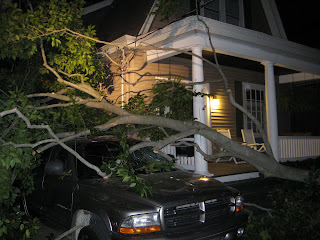
When a wave of major storms strikes Ohio, or anywhere in the United States for that matter, your carrier uses insurance premiums to pay claims to help customers, like you, recover. If they expect more storms, your rates increase. Ohio has been rocked with several devastating storms this past year, causing damage from hail to tornadoes.
Catastrophe losses in 2011 caused the U.S. property and casualty insurance industry to experience its worst losses since 2002, and analysts say 2012 should only see modest improvement. A.M.Best, the industry rating agency, reported the industry experienced more than $44 billion in catastrophe losses, driving down net income.
Simply stated, a greater frequency and severity of storms create higher premiums, regardless of whether or not you have had a claim.
“We are in the midst of a very long-term trend. Whatever the underlying causes are, this is pushing up the cost of providing insurance in many parts of the country. Insurers have begun to reflect that in their rates,” said Robert Hartwig, chief economist and president of the Insurance Information Institute.
The Buckeye State ranks 6th lowest in the United States based on its average homeowners insurance premium. Even with the increase looming, the cost of coverage remains considerably lower in Ohio than in most other states.
How to save on homeowners insurance The best way to reduce the impact of a rate increase is to talk to your independent insurance agent about your coverage options and let them find the best solution for your needs. Their knowledge and professionalism is your best option.
 When a wave of major storms strikes Ohio, or anywhere in the United States for that matter, your carrier uses insurance premiums to pay claims to help customers, like you, recover. If they expect more storms, your rates increase. Ohio has been rocked with several devastating storms this past year, causing damage from hail to tornadoes.
When a wave of major storms strikes Ohio, or anywhere in the United States for that matter, your carrier uses insurance premiums to pay claims to help customers, like you, recover. If they expect more storms, your rates increase. Ohio has been rocked with several devastating storms this past year, causing damage from hail to tornadoes. 
